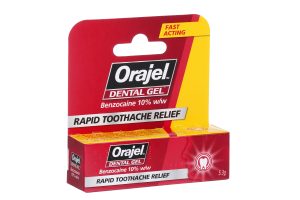 Oral health problems can develop for anyone, causing difficulty eating, trouble concentrating, and pain. However, for some people the experience and management of dental issues is more complex. Currently, there are an estimated 982,000 people in the UK living with dementia.[i] As such, it’s important to understand the various ways that patients with dementia may struggle with their oral health, how to recognise patients in pain, and how best to support individuals in treatment and pain management.
Oral health problems can develop for anyone, causing difficulty eating, trouble concentrating, and pain. However, for some people the experience and management of dental issues is more complex. Currently, there are an estimated 982,000 people in the UK living with dementia.[i] As such, it’s important to understand the various ways that patients with dementia may struggle with their oral health, how to recognise patients in pain, and how best to support individuals in treatment and pain management.
Oral health and dental pain in dementia patients
Poor oral care is observed in patients with cognitive impairment, due to decreased motor coordination and agitated behaviour making it difficult to perform oral care. Exacerbating this, patients with dementia usually attend dental appointments less often. Around 75% require assistance to perform daily activities like oral hygiene.[ii]
Common dental problems amongst dementia patients include caries and gingivitis which are preventable with regular brushing and a healthy diet. Tooth wear and damage, as well as dry mouth are also common, causing sensitivity, pain, and discomfort.[iii] Some patients with dentures may also experience pain due to sores, so it is important for ill-fitting dentures to be addressed in order to maintain quality of life.[iv]
Ability to communicate pain
As dementia worsens over time, the likelihood of a patient being in any type of pain increases. Daily pain is experienced by between 50% to 80% of patients with moderate to severe dementia.iv However, it can be difficult to ascertain whether patients are affected. This is because Alzheimer’s disease can cause a person to develop a mask-like facial expression, minimising the facial expressions associated with pain. Some patients may also have lost the cognitive ability to communicate their pain – leaving individuals with very few options to alert their caregivers that something is wrong, with negative behaviours like screaming or aggression possible.iv
As assessment and treatment of pain in dementia patients is challenging due to the difficulty in reporting pain, undiagnosed and untreated pain is thought to affect up to a third of those in the community, and half of those in nursing homes.ii

Identifying pain and mouth care problems
For some people, dental problems can make it difficult to eat meaning that, over time, patients will eat less and potentially start to lose weight. For patients with dementia, this may be an indicator to caregivers that there is a problem in the mouth and that they may be in pain. If concerns are raised about this, it’s important for dental professionals to check the patient’s mouth for any signs of disease, infection, or irritation.iii
Aside from problems eating, there may be a number of other signs for caregivers to look out for as an indicator of dental pain. These include: frequently touching their face, facial swelling, not wearing dentures, restlessness, disturbed sleep, refusing help with dental care, or aggressive behaviour towards their carer. It is important that these symptoms are not dismissed as part of a person’s dementia, as they could be a sign that they are in pain and need help from a dentist.iii
Supporting patients and managing dental pain
 In order to support patients with dementia in maintaining their oral health, there are a number of recommendations for caregivers. These includes establishing a routine to help ensure the teeth are cleaned twice per day and prevent dental problems developing. Where possible, encourage the person to clean their teeth by themselves, only stepping in if they need help. It is also useful to minimise the amount of sugar the individual consumes, again helping to prevent oral disease.[v]
In order to support patients with dementia in maintaining their oral health, there are a number of recommendations for caregivers. These includes establishing a routine to help ensure the teeth are cleaned twice per day and prevent dental problems developing. Where possible, encourage the person to clean their teeth by themselves, only stepping in if they need help. It is also useful to minimise the amount of sugar the individual consumes, again helping to prevent oral disease.[v]
If patients with dementia do experience oral pain, it’s important for dental professionals to recommend solutions to manage their pain at home whilst they wait for treatment. Orajel™ Dental Gel[vi] contains 10% benzocaine, allowing the patient or their carer to apply the local anaesthetic to the painful tooth. Dental professionals can also recommend Orajel™ Extra Strength[vii] which contains 20% benzocaine, for the rapid relief of dental pain. Additionally, if patients are suffering with mouth ulcers or denture pain, Orajel™ Mouth Gel[viii] is the ultimate soother.
Supporting patients with advanced needs is essential as a dental professional, with conditions like dementia often having a significant impact on a patient’s ability to effectively maintain their own oral health. Dementia patients are at a higher risk of oral disease and undetected pain, so understanding how best to monitor their oral health and manage pain whist they wait for treatment is key for maintaining their quality of life.

For essential information, and to see the full range of Orajel products, please visit https://www.orajel.co.uk/
[i] Alzheimer’s Society. Local dementia statistics. Accessed May 25. https://www.alzheimers.org.uk/about-us/policy-and-influencing/local-dementia-statistics
[ii] Macedo, Arthur C., et al. “Prevalence of orofacial pain in individuals with mild cognitive impairment or dementia: A systematic review and meta‐analysis.” Gerodontology 41.3 (2024): 335-345. https://onlinelibrary.wiley.com/doi/pdf/10.1111/ger.12740
[iii] Alzheimer’s Society. Dental and mouth care. Accessed May 25. https://www.alzheimers.org.uk/get-support/daily-living/dental-mouth-care
[iv] Mayo Clinic Health System. Dementia-related pain: What caregivers need to know. Accessed May 25. https://www.mayoclinichealthsystem.org/hometown-health/speaking-of-health/dementia-related-pain-and-caregivers
[v] Alzheimer’s Society. Supporting a person with dementia to keep a healthy mouth. Accessed May 25. https://www.alzheimers.org.uk/get-support/daily-living/supporting-person-dementia-keep-healthy-mouth
[vi] Orajel Dental Gel. Summary of Product Characteristics. Available at: https://www.medicines.org.uk/emc/product/1230/smpc Accessed: May 25
[vii] Orajel Extra Strength. Summary of Product Characteristics. Available at: https://www.medicines.org.uk/emc/product/1231/smpc Accessed: May 25
[viii] Orajel Mouth Gel. Summary of Product Characteristics. Available at: https://www.medicines.org.uk/emc/product/1229/smpc Accessed: May 25





